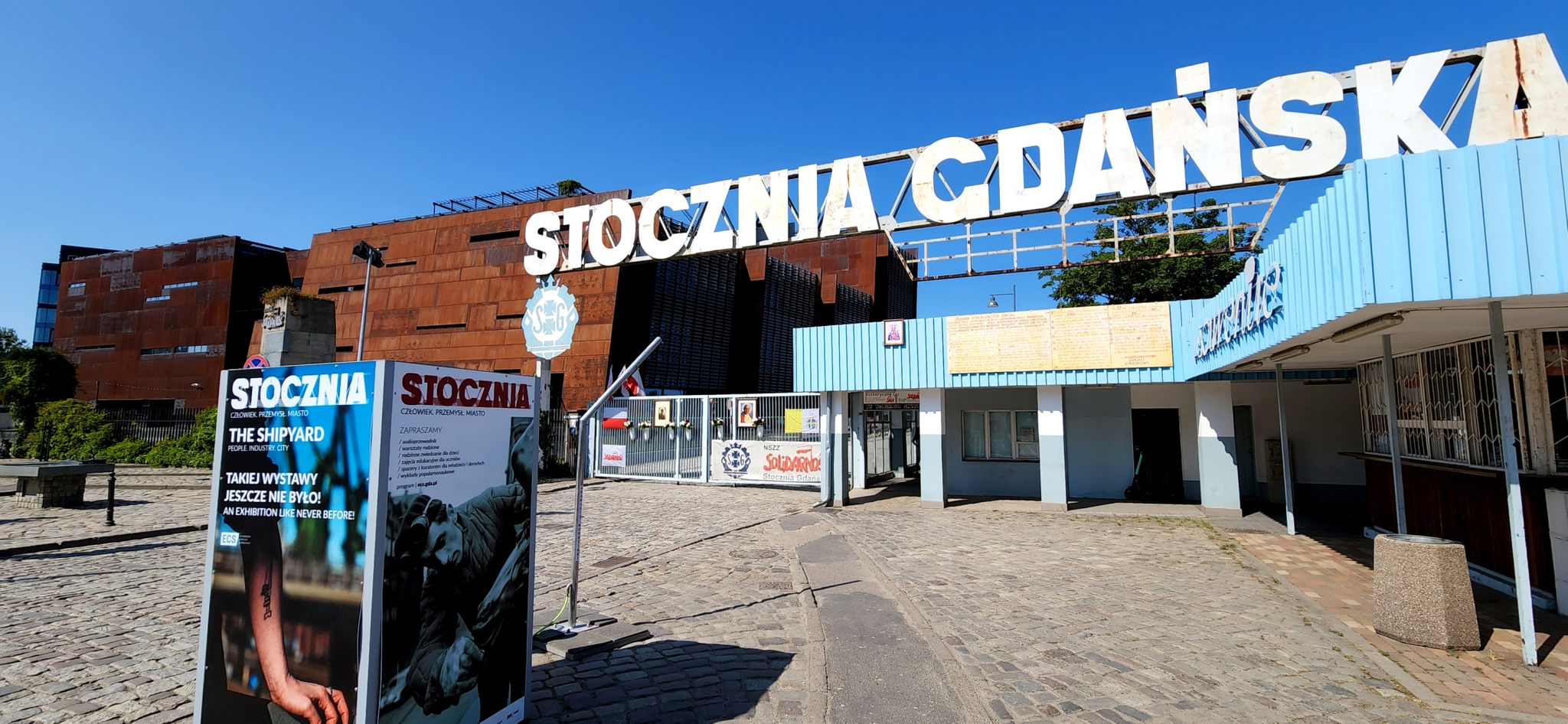News
The Gdańsk Declaration: Solidarity for Democracy
From 21-23 June 2023, the European Solidarity Centre and The Brenthurst Foundation staged a conference on 'Rolling Back Authoritarianism' in Gdańsk, Poland, the epicentre of political change in Poland and in Europe in the late 1980s. The event was attended by more than 50 leaders from Africa, Latin America, Poland and the Baltic States. At the end of the event, the Gdańsk Declaration was adopted unanimously. It lays out the commitment of all delegates to ending authoritarianism and introducing democracy, accountability and transparency. This is the full text of this historic declaration. The signatories are listed at the end of the document
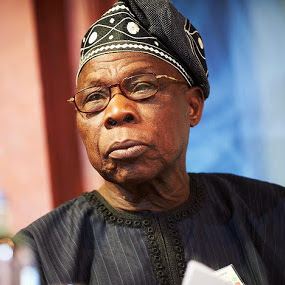
Former President of Nigeria; Chairman and Advisory Board Member Emeritus, The Brenthurst Foundation
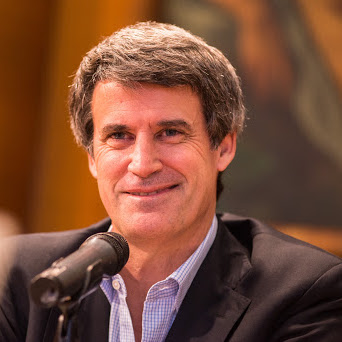
Former Minister of the Economy, Argentina
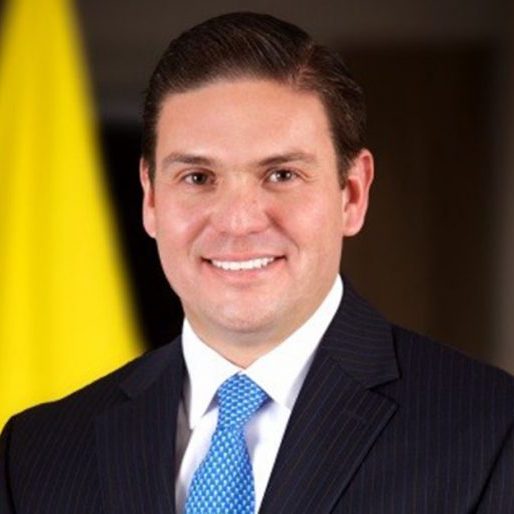
Former Ambassador of Colombia to the United States

Director, The Brenthurst Foundation
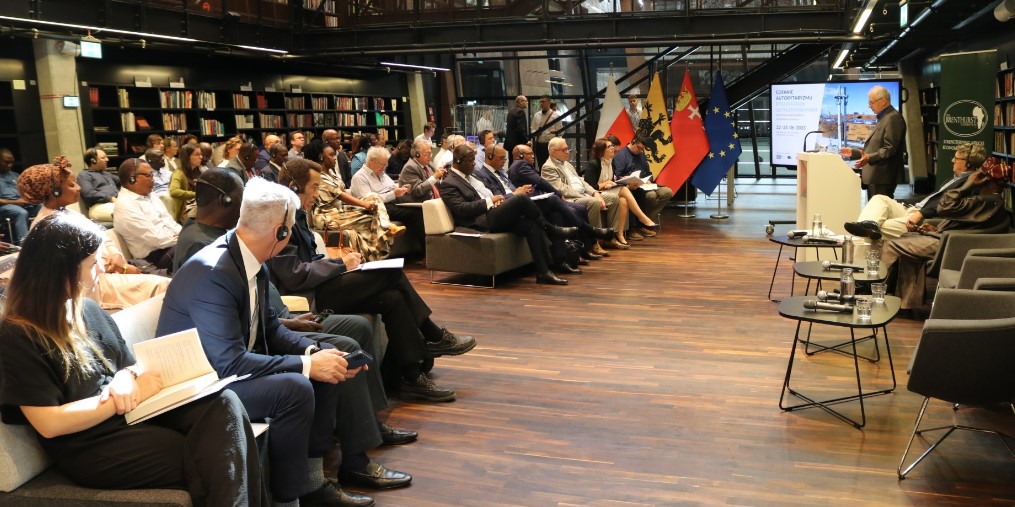
The Gdansk Declaration
Solidarity for Democracy
From 21-23 June 2023, the European Solidarity Centre and The Brenthurst Foundation staged a conference on Rolling Back Authoritarianism in Gdańsk, the epicentre of political change in Poland and in Europe in the late 1980s.
This event took place as the world faced new challenges posed by contemporary authoritarian leaders and political systems and increasing assaults on democracy. The delegates were cognisant of the significance of meeting in a country adjacent to Ukraine which is the subject of an aggressive assault on democracy and sovereignty which is unacceptable to all freedom loving peoples.
We recognise that democracy in Africa is already under growing threat, including dramatic reversals this century in the Sahel and in North Africa. While these struggles may be characterised as popular, authoritarianism is today less about promoting ideology than defending elite privilege and power. Some African countries have never enjoyed a peaceful transfer of power at the polls. The weakness of institutions makes African countries particularly vulnerable to external undermining of democracy and to the risks of state capture.
The problem in Africa is not that we have too much democracy, as is sometimes claimed, but not enough.
Since nine out of ten Africans live under versions of authoritarianism, the struggle for democracy must involve all those outside government, in civil society including the media, academia, trade unions, churches and business. It may also involve those in government, given differences between ‘enlightened’ and ‘repressive’ authoritarians.
These struggles are not nationally determined and bound. Defending democracy requires common purpose – of solidarity – among democrats inside and outside all countries. Just as authoritarians have created their own financial, military and media networks that support each other, democrats have to do the same.
And nor are these struggles confined only to Africa. Democrats everywhere are under stress in maintaining these values and corresponding systems.
We accept that there is disillusionment with democracy. This is going to make it difficult to achieve majority governments, and stresses the need for coalitions for democracy on the one hand, and the development of policies that address the concerns of the electorate. Being generally pro-liberty and pro-democracy is not enough always to convince the electorate of the need for sacrifice to defend these values.
We need to promote values at home and abroad. We need not only to learn from the past, but examine our present in strategizing for the future.
We note that those parties which win power at the polls, need to act quickly with this mandate.
But first, democrats need to win the vote at home and to defend this victory. The history of Gdańsk, where the meeting was held, holds valuable lessons for those seeking to build free and open societies.
In 1980, the Gdańsk Agreement, comprising 21 points, reached accord between the government of the Polish People's Republic and the striking workers of the Lenin Shipyard. Signed in August 1980 by the government and the strike leader Lech Wałęsa, the Agreement led to the creation of the trade union Solidarity. As such it became an important milestone in the end of Communist rule in Poland and eastern Europe.
Similarly, this contemporary Gdańsk Declaration can be summarised in 21 points describing how oppositions and civil society can roll back authoritarianism and promote peace and democracy in undertaking to:
-
Support democratic struggles materially and morally, making the fight for democracy easier and safer.
-
Accentuate common interests between opposition groups and seek to find common ground over differences.
-
Commit to shared values and principles, before and after taking power, including transparency, accountability, and key policy precepts such as the protection of private property, and reform of the education and health systems. Act to continuously uphold freedom of speech and association, and basic human rights.
-
Commit to breaking down racial, ethnic, geographical and religious divides in building just, free and fair societies.
-
Establish a region-wide *Alliance of Democrats*, formed around shared values, which meets frequently to build trust, develop joint strategies, monitor electoral standards and practices, and share experiences.
-
Advance a common, clear and consistent narrative to address the needs and fears of the population.
-
Create economies of scale through joint party procurement.
-
Participate in regional election monitoring missions.
-
Defend against state capture by championing the independence of domestic and constitutional electoral agencies, and the judiciary.
-
Develop a common funding platform, internationally sourced and transparently managed, committing to spend 90% of funding raised within the country.
-
Jointly develop and share programmes for post-election reforms, since the goal is not only to remove the regime in power.

-
Call out and manage those corporations responsible for manipulating internet and data coverage.
-
Ensure democracy and transparency in internal processes of governance, and channel support to leaders based on their popularity.
-
Commit to a path for equal gender representation.
-
Expose foreign funding and malfeasance, including disinformation and vote manipulation.
-
Encourage donors to calibrate their support for countries according to their democratic credentials.
-
Guard the capture of the vote and rivals through technology by creating and sharing cyber capacity.
-
Appeal to regional and international leaders and institutions to respond and provide leadership and engage with the opposition especially during times of crisis.
-
Speak on each other’s party platforms, and attend each other’s congresses as special guests.
-
Behave towards each other as fellow democrats, not deadly rivals, and seek those actions which imbue trust.
-
Openly share in, promote and celebrate each other’s successes in opposition as a collective win for African democracy, one election win at a time.
Governments have played a role in dividing opposition and continuing to rule. In so doing they follow a playbook of election malfeasance, including tampering of voter’s rolls and other forms of vote rigging, bribery, manipulation of the media, corruption and intimidation. A strong bloc of opposition groups – within countries and outside – is the best antidote to this, in building their own ecosystems for change and looking out for each other.
We recognise that freedom is not free. Democrats everywhere need to be united, and work together to reduce the costs and risks of this formidable if achievable task. We must provide moral support to all comrades in struggle, from Ukraine to Uganda.
This Declaration offers a collegial and institutional step in that direction.
LIST OF ATTENDEES AND SIGNATORIES
- Abbasali Haji, East Africa Capital, Tanzania
- Adalberto Costa Júnior, Leader, UNITA, Angola
- Alexander Kambili, Germany
- Alfonso de Prat Gay, Former Minister of the Economy, Argentina
- Amgad Faried Eltayeb Idris, CEO, Fikra Center for Studies and Development, Egypt
- Andriy Marasin, former Senior Assistant Defense Attaché, Ukraine
- Arkadiusz Modrzejewski, Director of Institute of Political Science, University of Gdansk, Poland
- Artis Pabriks, Former Deputy Prime Minister, Latvia
- Atupele Muluzi, President, United Democratic Front, Malawi
- Robert Kyagulanyi “Bobi Wine”, Leader, National Unity Platform, Uganda
- Branko Brkic, Editor-in-Chief, Daily Maverick, South Africa
- Christopher Clapham, Professor Emeritus, Cambridge, UK
- Cynthia Appenteng, Ellen Johnson Sirleaf Foundation, Liberia
- David Coltart, Former Minister of Education, CCC, Zimbabwe (did not attend Gdańsk event, but signed afterwards)
- Geordin Hill-Lewis, Mayor of Cape Town, South Africa
- Gloria Uwishema Nsengiyumva, Human Rights activist, All for Rwanda, Rwanda
- Greg Mills, Director, The Brenthurst Foundation, South Africa
- Gregor Jaecke, Resident Representative, KAS, South Africa
- Gregory Nemyria, Deputy Chair, Foreign Relations Committee, Rada, Ukraine
- Holger Dix, Konrad Adenauer Stiftung, Germany
- Ian Khama, Former President, Botswana
- Illia Bozhok, Ukraine
- Ivone Soares, Member of Parliament, RENAMO, Mozambique
- Jawar Mohammed, Founder, Oromia Media Network, Ethiopia
- Jędrzej Czerep, Head, Polish Institute of International Affairs, Poland
- John Githongo, CEO, Inuka, Kenya
- John Steenhuisen, Leader, Democratic Alliance, South Africa
- Juan Carlos Pinzón, Former Defence Minister, Colombia
- Kate Almquist Knopf, Senior Advisor, WestExec Advisors, US
- Khemaies Jhinaoui, Former Foreign Affairs Minister, Tunisia
- Kizza Besigye, President, Forum for Democratic Change, Uganda
- Lech Wałęsa, Former President, Poland
- Leopoldo Lopèz, Opposition Leader, Venezuela
- Luis Franceschi, Assistant Secretary General, The Commonwealth, UK
- Luke Pato, Bishop, Anglican Church of Southern Africa, South Africa
- Lutero Simango, President Democratic Movement of Mozambique, Mozambique
- Marcos Peña, former Chief of the Cabinet of Ministers, Argentina
- McHenry Venaani, President, Popular Democratic Movement, Namibia
- Mpumelelo Mkhabela, Political Analyst, South Africa
- Moeketsi Majoro, former Prime Minister, Lesotho
- Mohamed Anwar Esmat Sadat, Leader, Reform and Development Party, Egypt
- Oleksandra Matviichuk, Head of Centre for Civil Liberties, Nobel Laureate, Ukraine
- Olusegun Obasanjo, Former President, Nigeria
- Omer Ismail, Former Foreign Affairs Minister, Sudan
- Paula Cristina Roque, Political Affairs Analyst, Portugal
- Raila Odinga, Former Prime Minister, Kenya
- Ray Hartley, Research Director, The Brenthurst Foundation, South Africa
- Robin Auld, Artiste, south Africa
- Roelf Meyer, CEO, In Transformation, South Africa
- Roland Freudenstein, Vice-President, Globsec, Belgium
- Sanyaolu Ayowole Oluwajuwon, African Action Congress, Nigeria
- Tendai Biti, Former Zimbabwe Finance Minister, CCC, Zimbabwe
- Tundu Lissu, MP, CHADEMA, Tanzania
- Velenkosini Hlabisa, President, Inkatha Freedom Party, South Africa
- Venâncio Mondlane, MP, RENAMO, Mozambique
- Winnie Odinga, EAC Member of Parliament, Kenya
- Yulia Tymoshenko, former Prime Minister, Ukraine
- Zitto Kabwe, Leader, ACT-Wazalendo, Tanzania

